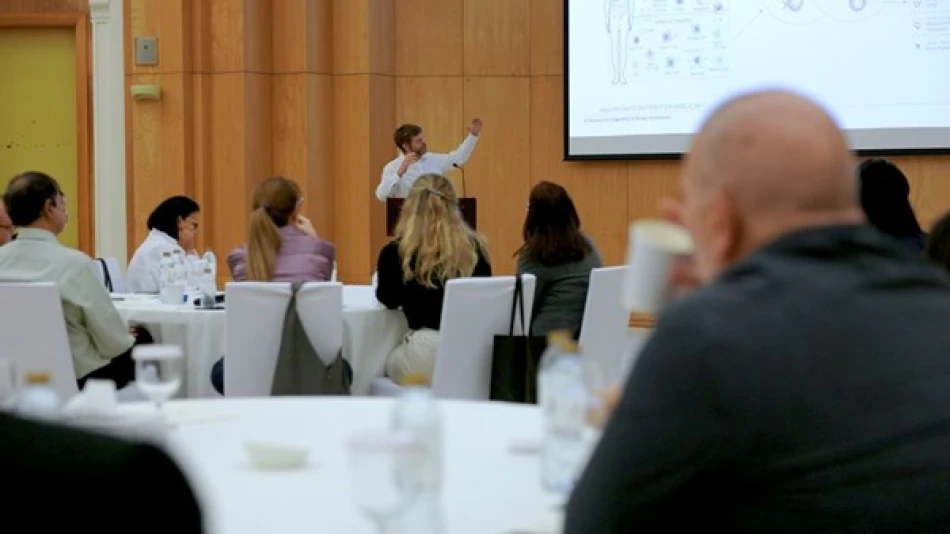
Abu Dhabi Stem Cell Center Explores AI's Transformative Role in Innovative Sciences
UAE Positions Itself as Global Hub for AI-Driven Medical Innovation
The United Arab Emirates is accelerating its push to become a world leader in healthcare innovation, with top researchers and experts highlighting how artificial intelligence is revolutionizing medical research and biotechnology at unprecedented scales. The Abu Dhabi Stem Cell Centre's recent "Minds" summit underscored the nation's strategic commitment to integrating AI across critical healthcare sectors, from drug discovery to genomics.
AI as Partner, Not Replacement in Medical Research
Speaking at the summit held under the theme "Artificial Intelligence in Innovative Sciences," leading experts emphasized that AI technology serves as an amplifier of human capabilities rather than a substitute. The discussions centered on strategic applications across vital areas including drug discovery and design, genomics, nanotechnology development, and enhancing researcher efficiency in laboratory settings.
Professor Yendry Ventura, CEO of the Abu Dhabi Stem Cell Centre, articulated this vision clearly: AI represents a fundamental resource that enhances human intellectual capacity without replacing it. The technology accelerates the transition from research phase to treatment, improves scientific precision, and opens pathways for medical discoveries capable of creating transformative changes in people's lives.
Strategic Vision Aligns with Global Competition
The UAE's focus on AI-driven healthcare innovation reflects a broader global competition for leadership in medical technology. Countries like Singapore have invested heavily in AI research centers, while the United States continues to lead in biotech venture capital funding. The UAE's approach, however, leverages its unique position as a bridge between East and West, potentially attracting international partnerships and talent.
This positioning comes at a critical time when AI applications in healthcare are moving from experimental phases to practical implementation. The global AI in healthcare market is projected to reach $102 billion by 2028, making early strategic investments crucial for maintaining competitive advantage.
From Research to Real-World Applications
Dr. Tamara Menendez, a researcher at the Abu Dhabi Stem Cell Centre, highlighted how the integration between AI's analytical power and human creativity creates opportunities to reshape future treatments. She noted that the current phase represents a turning point where science meets technology to address the most pressing medical challenges.
This integration is particularly significant in stem cell research, where AI can analyze vast datasets to identify patterns that might take human researchers years to discover. The technology can accelerate the identification of promising cell lines, predict treatment outcomes, and optimize therapeutic protocols.
Ethical Frameworks and Human Oversight
The summit concluded with interactive sessions emphasizing the critical importance of establishing ethical guidelines and maintaining human oversight. This focus on responsible AI development addresses growing global concerns about algorithmic bias in healthcare and the need for transparent, accountable AI systems.
Market implications are substantial. Healthcare investors are increasingly looking for companies that can demonstrate not just technological capability, but also robust ethical frameworks. The UAE's emphasis on responsible AI development could attract significant international investment and partnerships, particularly from institutions seeking stable, well-regulated environments for long-term research initiatives.
The summit's outcomes suggest the UAE is moving beyond rhetoric toward concrete implementation of AI in healthcare, positioning itself as a serious contender in the global race for medical innovation leadership.
Most Viewed News

 Layla Al Mansoori
Layla Al Mansoori






